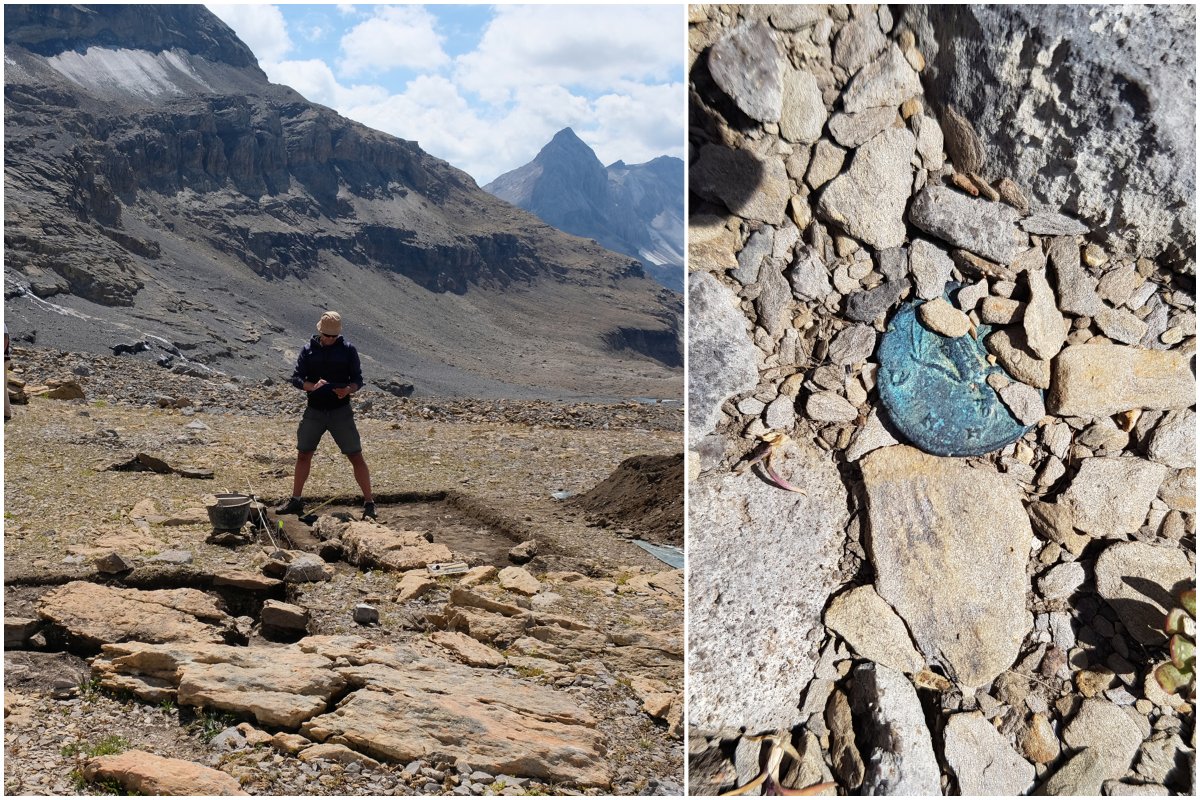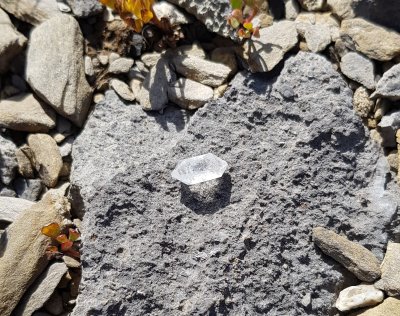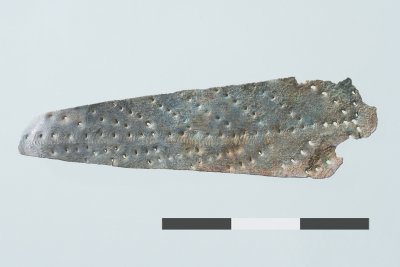While trekking through the Swiss Alps, a hiker came across an ancient Roman coin, buried in the rubble.
After reporting the finding to the local archeological unit, a whole hoard of ancient artifacts were found buried at the site, which archeologists now believe may have been a place of holy worship—a site to lay offerings to the Roman mountain gods.
The site was discovered in 2020 and excavations began in the summer of 2022 by a team of archeologists from the Education and Culture Directorate of the Canton of Bern, the capital of Switzerland. So far, the team has uncovered 100 coins, 27 small rock crystals, 59 Roman shoe nails, a brooch and a fragment of a leaf-shaped votive plaque.

"We do find single Roman coins occasionally in the Alps, but this site is unusual because of the amount of coins and the location," Regula Gubler, the study's scientific project manager, told Newsweek. "More common would be finds—coins, brooches—on mountain passes. This site however, is far from human habitation, today and in Roman times, at 2,590 meters above sea level [nearly 8,500 feet], and definitely not a pass."
Gubler said that the site sits on a plateau between the mountain peaks of Ammertenhorn and Wildstrubel, which she described as "pretty impressive."
"The site is several hours' hike from the nearest road and also far from hiking paths," she said. "We had to fly our supplies up there and camped for several days. Which, of course, was an amazing experience."
The unusual location of the site, and the concentrated selection of treasures that had amassed there, have led the researchers to believe that this was a place of great religious significance.
"We are only at the beginning of the investigations, but we think it is a holy place, where people went to deposit votive offerings—mainly coins, but also other objects—asking the deities for things or thanking them," Gubler said. "I guess a kind of pilgrimage."
Just over 12 miles from the site is the town of Thun, which houses several Roman temples. In one of them, archeologists have found an inscription that mentions female alpine deities.
"The mountains had clearly a religious significance," Gubler said.



The site's significance may have something to do with the little rock crystals that the team found among the coins.
"The rock crystals we found occur naturally up there but may be part of the reason the location was considered significant/auspicious," Gubler said.
The Western Roman Empire began toward the end of the 1st century BC and ended in the 5th century AD.
"The Romans lived in all of Switzerland," Gubler said. "People did live in the Alps too, but like today, they lived on valley floors and used the pastures higher up for their animals.
"The mountain passes connecting the Swiss plateau north of the Alps with Northern Italy were frequented. [As a result,] high-alpine finds from the Roman period are not uncommon, but usually it is single coins or other items on passes or sometimes mountain tops."
The coins at the newly found site date from the 1st century AD to the very beginning of the 5th century AD.
"It is always hard to give a value, but they are basically all small change—so not worth a lot and 'easy' to give away to the deities," Gubler said. "Our coin specialist says the range of the assemblage of coins is not a lost wallet or someone's treasure, it fits much better with coins deposited in temples over a longer period of time."
The researchers will continue to study the site to find out more about its potential historical significance.
"It is an interesting site because it shows that the Roman population of the region didn't only worship the mountains from afar, but also went up and close to them to deposit votive offerings," Gubler said.
Correction 3/10/23, 10:08 a.m. ET: This article was updated to correct Regula Gubler's pronouns.
Uncommon Knowledge
Newsweek is committed to challenging conventional wisdom and finding connections in the search for common ground.
Newsweek is committed to challenging conventional wisdom and finding connections in the search for common ground.
About the writer
Pandora Dewan is a Senior Science Reporter at Newsweek based in London, UK. Her focus is reporting on science, health ... Read more
To read how Newsweek uses AI as a newsroom tool, Click here.






